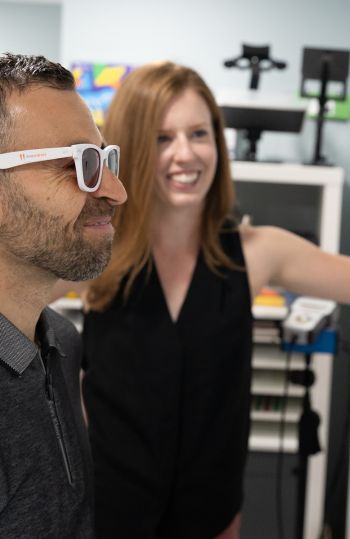
Prevent Sight Loss Due to Diabetes
Diabetes impacts your health in many ways. While most people are aware of the effects diabetes has on the body, eye care as part of overall diabetes management is often overlooked.
Optometrists are often the first to diagnose diabetes in a patient, owing to the specific ways in which the disease affects the eyes. In fact, almost 1 million Canadians are currently living with undiagnosed diabetes, making a comprehensive eye exam all the more important to detect it before vision loss occurs.
At Brantford Eye Care, we are experienced in caring for patients with diabetes. Help prevent vision loss by booking your appointment today!

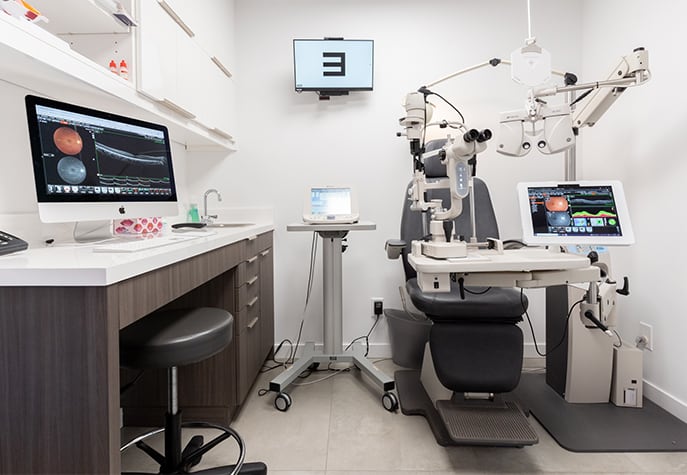

How Does Diabetes Impact the Eyes?
People with diabetes either cannot produce insulin (type 1 diabetes) or cannot use the insulin they do produce effectively (type 2 diabetes). Insulin is the hormone responsible for regulating blood sugar—when the body is unable to either make or use it, sugar builds up in the bloodstream.
Everyone with diabetes, regardless of whether it is type 1 or type 2 diabetes, is at risk for diabetic eye diseases. Too much sugar in the bloodstream can damage organs, nerves, and blood vessels, including the tiny, delicate ones in your eyes.
If you have diabetes, we will assess your eyes’ vascular system, looking closely for any damage as well as any changes over time. Identifying diabetic eye diseases early is critical to preserving your vision and mitigating any loss of sight.
People with diabetes should have an annual comprehensive eye exam, regardless of age. Of course, if there are any changes in your vision such as flashes, floaters, blurry vision, or any loss of sight, please make an appointment right away.
Depending on your condition and the current state of your eyes, we may recommend exams at a higher frequency. Book your appointment for a diabetic eye exam today.

Diabetic Retinopathy
The longer you have diabetes—and the less controlled your blood sugar is—the higher your risk is of developing an eye disease like diabetic retinopathy. This condition is the leading cause of blindness among adults of working age.
Diabetic retinopathy occurs when the small, delicate blood vessels in your retina weaken and swell. Sometimes, these blood vessels burst, causing fluid leakage and blurred vision. As the disease advances, new, abnormal blood vessels can form in place of the damaged ones.
These newer blood vessels are weaker and thus more prone to bursting, causing even more fluid buildup. This is what is known as the “proliferative” stage of the disease.
If the fluid leaks into the macula, significant vision loss can occur. The macula is responsible for your central vision, allowing you to see faces, drive a car, and do close-up tasks like reading and writing.
Diabetic retinopathy affects 500,000 Canadians. If you have diabetes, it’s important to have your eyes checked regularly, to look for signs of retinopathy in its early stages, before it progresses.
At Brantford Eye Care, we are well-versed in the testing and treatment of diabetic eye diseases. You will receive compassionate, capable care. Book your appointment now.

Technology for Testing
At Brantford Eye Care, we have invested in the latest technology to monitor your eyes for any signs of diabetic eye disease. Read on to learn about our methods.
Dilated Eye Exams
We may dilate your pupils during your diabetic eye exam. This simple process involves placing drops in the eye to widen your pupils. This allows us to get a clearer view of your eye’s internal structures.
You may be sensitive to light after a dilated eye exam, so we recommend bringing sunglasses and having someone drive you home.
Fundus Photography
A fundus camera takes high-resolution, full-colour images of the inside back surface of your eye, known as the fundus.
The macula, retina, retinal vascular system, and optic disc are located in this area, and by examining them, we can detect the early signs of eye disease.
Optical Coherence Tomography (OCT)
We use optical coherence tomography (OCT) to take a cross-section image of your retina in order to view and measure its layers and vascular structure.
Visual Field Testing
During this test, you will be asked to focus on a point straight ahead. Then, flashes of light are displayed on a screen and you will be asked to press a button whenever you see one of the flashes. A computer records the results, constructing a virtual map of your visual field. Your doctor will look for “blind spots.”
Blind spots signify that certain areas of your vision are poor and may indicate the presence of diabetic retinopathy as well as other eye diseases.

Our Locations
Brantford
- 268 Brant Ave.
- Brantford, ON N3T 3J7
*We’re closed on Saturdays during long weekends, as well as every Saturday in July & August.
Hours Of Operation
- Monday: 9:00 AM – 8:00 PM
- Tuesday: 9:00 AM – 8:00 PM
- Wednesday: 9:00 AM – 5:00 PM
- Thursday: 10:00 AM – 8:00 PM
- Friday: 9:00 AM – 5:00 PM
- Saturday: 9:00 AM – 4:00 PM*
- Sunday: Closed
Ohsweken
- 1721 Chiefswood Rd, Unit 13
- Ohsweken, ON N0A 1M0
Call us Mondays and Wednesdays between 9:00 am-4:00 pm (We are closed 1:00 pm – 1:30 pm). Please call the Brantford location on other days of the week.
Hours Of Operation
- Monday: 9:30 AM – 4:15 PM
- Wednesday: 9:30 AM – 4:15 PM

Our Blog
Dry Eye Relief After IPL & RF: What to Try Next
Dry eyeOur team at Brantford Eye Care often works with people who have tried treatments like IPL or RF and still hope for lasting relief from dry eye symptoms. It can be frustrating when you follow through with a recommended therapy and still feel discomfort. This can make it hard to read, work on a computer, […]
What Diseases Can Be Detected in an Eye Exam?
Eye ExamYour eyes can reveal far more than vision changes. During a comprehensive eye exam, your optometrist can detect early signs of serious health conditions—often before symptoms appear elsewhere in the body. At Brantford Eye Care, advanced diagnostic technology allows us to assess both your vision and your overall health in a single, thorough examination. A […]
Chalazion & Dry Eye: How Jett Plasma Pen Can Help
Eye ConditionsAn unexpected bump on your eyelid can be concerning. It might feel a little tender or just be an annoyance you notice when you look in the mirror. This common issue, called a chalazion, is often connected to the overall health and function of your eyelids and may be related to conditions like dry eye […]
Dry Eye Relief After IPL & RF: What to Try Next
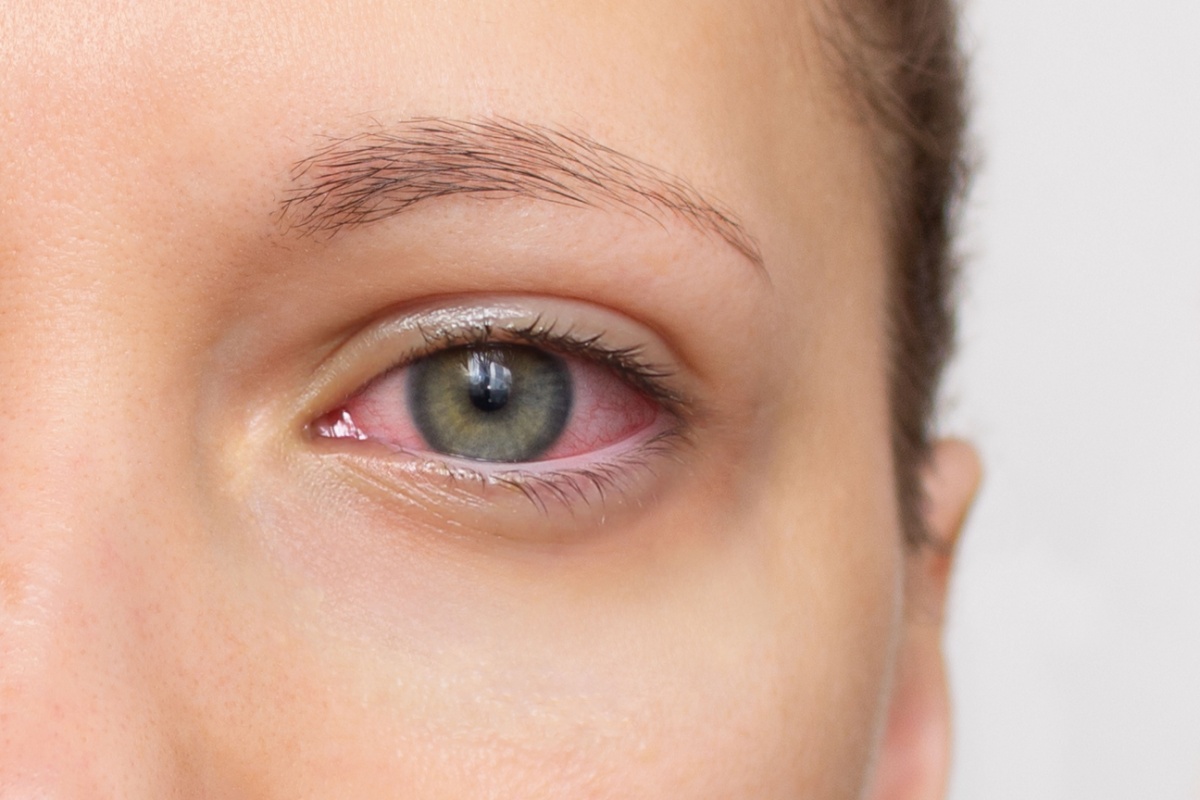
Our team at Brantford Eye Care often works with people who have tried treatments like IPL or RF and still hope for lasting relief from dry eye symptoms. It can be frustrating when you follow through with a recommended therapy and still feel discomfort. This can make it hard to read, work on a computer, […]
What Diseases Can Be Detected in an Eye Exam?
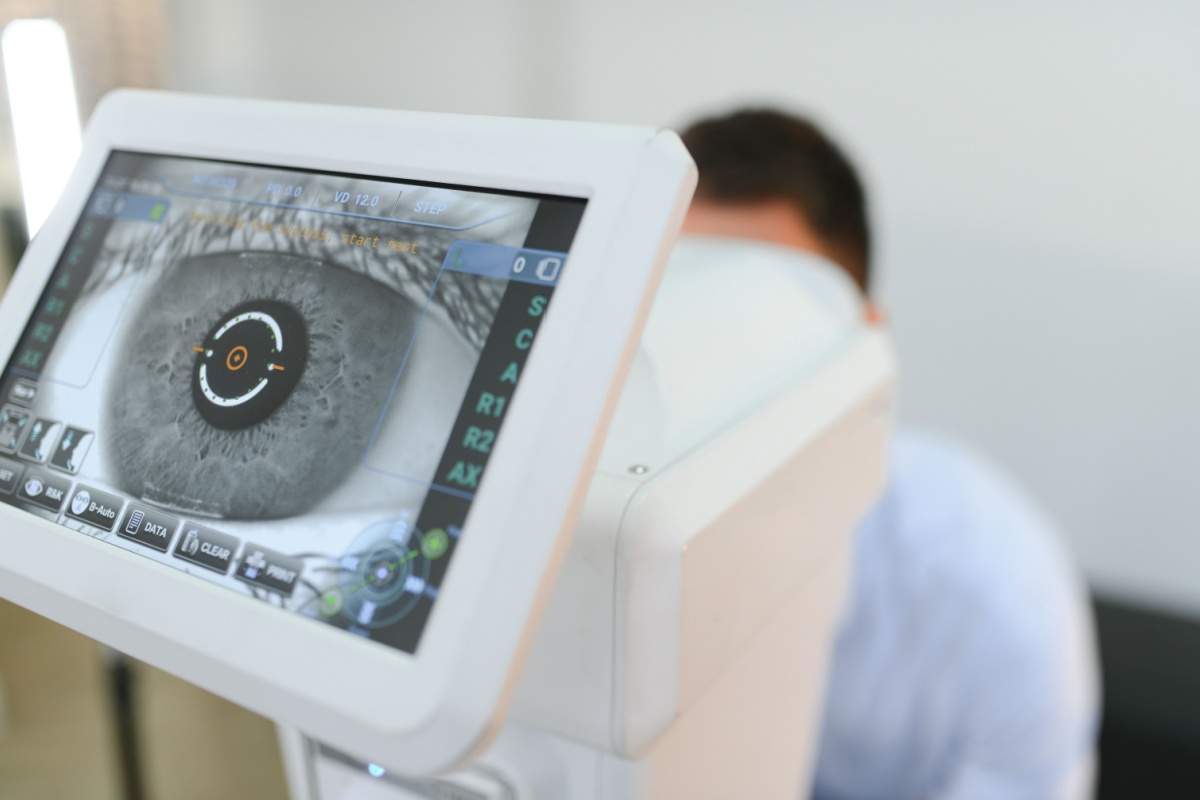
Your eyes can reveal far more than vision changes. During a comprehensive eye exam, your optometrist can detect early signs of serious health conditions—often before symptoms appear elsewhere in the body. At Brantford Eye Care, advanced diagnostic technology allows us to assess both your vision and your overall health in a single, thorough examination. A […]
Chalazion & Dry Eye: How Jett Plasma Pen Can Help
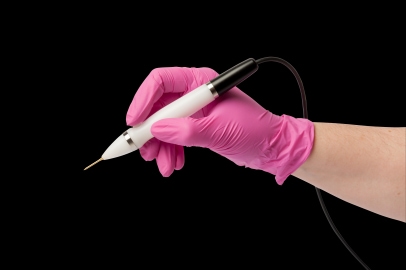
An unexpected bump on your eyelid can be concerning. It might feel a little tender or just be an annoyance you notice when you look in the mirror. This common issue, called a chalazion, is often connected to the overall health and function of your eyelids and may be related to conditions like dry eye […]

Our Brands




Check Us Out On Instagram

See Our Google Reviews





